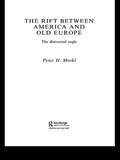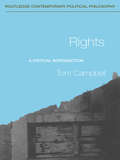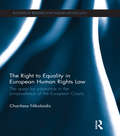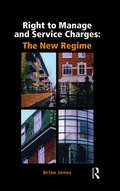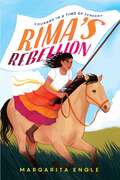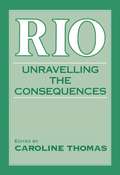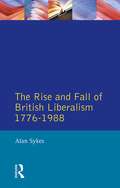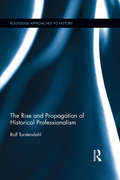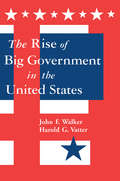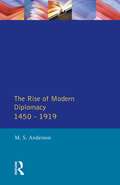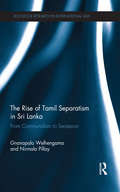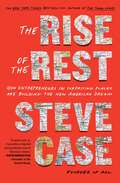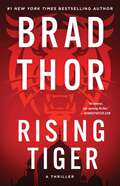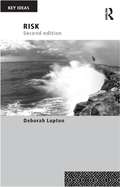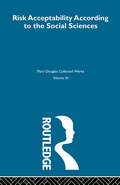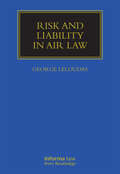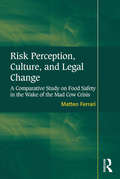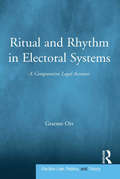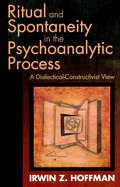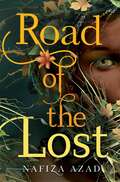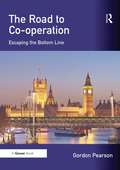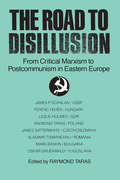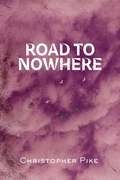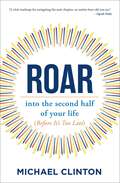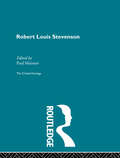Special Collections
Benetech’s Global Certified Accessible Titles
Description: Benetech’s GCA program is the first independent third-party EPUB certification to verify ebook accessibility. By creating content that is born accessible, publishers can meet the needs of all readers. Learn more: https://bornaccessible.benetech.org/
- Table View
- List View
The Rift Between America and Old Europe
by Peter MerklThis new book explains the recent rift between America and some of her oldest European allies, especially with Germany and France. Particular attention is devoted to the several competing interpretations of the Euro-American rift, for example, that Europeans were taken aback when American neo-conservative leaders scornfully rejected their well-meant offers of post-9/11 assistance with expressions of disdain for the allies' backward military technology and budgets. The Bush administration's rejection of the Kyoto Treaty, its environmental stance and its position on international treaties are also examined in detail. Merkl's interpretation emphasizes America's neo-imperial, unilateralist posture and policies as contrasted to the Wilsonian internationalism that created the United Nations and established international rule of law backed up by the Security Council, a web of international treaties and international courts, including the International Court of Criminal Justice. Today's American leaders thus oppose European champions of an American-initiated international order while identifying themselves with the imperialist European doctrines and practices of another age.
Rights
by Tom CampbellWe take rights to be fundamental to everyday life. Rights are also controversial and hotly debated both in theory and practice. Where do rights come from? Are they invented or discovered? What sort of rights are there and who is entitled to them? In this comprehensive introduction, Tom Campbell introduces and critically examines the key philosophical debates about rights.The first part of the book covers historical and contemporary theories of rights, including the origin and variety of rights and standard justifications of them. He considers challenges to rights from philosophers such as Bentham, Burke and Marx. He also examines different theories of rights, such as natural law, social contract, utilitarian and communitarian theories of rights and the philosophers and political theorists associated with them, such as John Stuart Mill, John Rawls, Robert Nozick and Michael Sandel. The second part of the book explores the role of rights-promoting institutions and critically assesses legal rights and international human rights, including the United Nations. The final part of the book examines how philosophies of rights can be applied to freedom of speech, issues of social welfare and the question of self-determination for certain groups or peoples.Rights: A Critical Introduction is essential reading for anyone new to the subject of rights and any student of political philosophy, politics and law.
The Right to Equality in European Human Rights Law
by Charilaos NikolaidisA right to equality and non-discrimination is widely seen as fundamental in democratic legal systems. But failure to identify the human interest that equality aims to uphold reinforces the argument of those who attack it as morally empty or unsubstantiated and weakens its status as a fundamental human right. This book argues that an understanding of the human interest which equality aims to uphold is feasible within the jurisprudence of the European Court of Human Rights (ECtHR) and the European Court of Justice (ECJ). In comparing the evolution of the prohibition of discrimination in the case-law of both Courts, Charilaos Nikolaidis demonstrates that conceptual convergence within the European Convention on Human Rights (ECHR) and the EU on the issue of equality is not as far as it might appear initially. While the two bodies of equality law are extremely divergent as to the requirements they impose, their interpretation by the international judiciary might be properly analysed under a common light to emphasise the substantive dimension of equality in European Human Rights law. The book will be of great use and interest to scholars and students of human rights, discrimination law, and European politics.
Right to Manage & Service Charges
by Brian JonesThis book will be essential reading for anyone involved in the management of blocks of flats, or considering acquiring the management of their block. Written by a lawyer well versed in leasehold law, the book's aim is to give a practical guide to a wide variety of management issues, concentrating especially on the pitfalls presented by the Commonhold and Leasehold Reform Act 2002 and how they may be avoided or overcome.
Rima's Rebellion
by Margarita EngleAn inspiring coming-of-age story from award-winning author Margarita Engle about a girl falling in love for the first time while finding the courage to protest for women&’s right to vote in 1920s Cuba.Rima loves to ride horses alongside her abuela and Las Mambisas, the fierce women veterans who fought during Cuba&’s wars for independence. Feminists from many backgrounds have gathered in voting clubs to demand suffrage and equality for women, but not everybody wants equality for all—especially not for someone like Rima. In 1920s Cuba, illegitimate children like her are bullied and shunned. Rima dreams of a day when she is free from fear and shame, the way she feels when she&’s riding with Las Mambisas. As she seeks her way, Rima forges unexpected friendships with others who long for freedom, especially a handsome young artist named Maceo. Through turbulent times, hope soars, and with it…love.
Rio
by Caroline ThomasThe interdisciplinary collection of essays investigates whether UNCED and its output were appropriate for averting global environmental and developmental catastrophe. The intellectual debate inside and outside UNCED has been dominated by powerful entrenched interests which marginalise rival interpretations of the crisis and block possible alternative ways forward. The crisis is therefore being tackled by a continuation of the very policies that largely caused it in the first place.
The Rise and Fall of British Liberalism
by Alan SykesHere is the first book to cover the history of British Liberalism from its founding doctrines in the later eighteenth century to the final dissolution of the Liberal party into the Liberal Democrats in 1988. The Party dominated British politics for much of the later nineteenth-century, most notably under Gladstone, whose premierships spanned 1868-1894, and during the early twentieth, but after the resignation of Lloyd George in 1922 the Liberal Party never held office again. The decline of the Party remains a unique phenomenon in British politics and Alan Sykes illuminates its dramatic and peculiar circumstances in this comprehensive study.
The Rise and Propagation of Historical Professionalism
by Rolf TorstendahlThis book examines the evolution of historical professionalism, with the development of an international community that shares a set of values regarding both methodological minimum demands and what constitutes new results. Historical professionalism is not a fixed set of skills, but a concept with varying import and meaning at different times depending on changing norms. Torstendahl covers the propagation of these different ideals and of new educational forms from the late 18th century to the present, from Ranke’s state-centrism to a historiography borne by social theories.
The Rise of Big Government
by Harold G. Vatter and John F. WalkerThe Rise of Big Government chronicles the phenomenal growth of local, state, and federal government over the last 100 years. The authors explain this growth by arguing that public and social acceptance of government intervention has allowed government to maintain a presence at all levels of the economy. The authors take issue with the opposing argument that government has grown by itself and by the bureaucracy's constant push for its own expansion.
The Rise of Modern Diplomacy 1450 - 1919
by M. S. AndersonThough international relations and the rise and fall of European states are widely studied, little is available to students and non-specialists on the origins, development and operation of the diplomatic system through which these relations were conducted and regulated. Similarly neglected are the larger ideas and aspirations of international diplomacy that gradually emerged from its immediate functions.This impressive survey, written by one of our most experienced international historians, and covering the 500 years in which European diplomacy was largely a world to itself, triumphantly fills that gap.
The Rise of Tamil Separatism in Sri Lanka
by Gnanapala Welhengama and Nirmala PillayAmong the examples of civil wars, armed secessionist movements and minority uprisings in the world today, many involve conflict between a minority group’s aim for political self-determination, and the nation state’s resistance to any diminution of sovereignty. With the expansion of the international regime of human rights, minority groups have reconceptualised their struggle with the understanding that a minority which is linguistically, religiously or ethnically distinctive is entitled to self-determination if their aspirations cannot be met. This book explores the relationship between minority rights, self-determination and secession within international law, by contextualising these issues in a detailed case study of the rise of Tamil separatism in Sri Lanka. Welhengama and Pillay show how Tamil communalism hardened into secession and assess whether the Sri Lankan government has met its obligations with respect to the right to self-determination short of secession. Focusing on the legal and human rights arguments for secession by the Tamil community of the North and East of Sri Lanka, the book demonstrates how the language of international law and international human rights played a major role in the development of the arguments for secession. Through a close examination of the case of the Tamil’s secessionist movement the book presents valuable insights into why modern nation states find themselves threatened by separatist claims and bids for independence based on ethnicity.
The Rise of the Rest
by Steve CaseSteve Case, cofounder of America Online and Revolution and New York Times bestselling author of The Third Wave, shows how entrepreneurs across the country are building groundbreaking companies, renewing communities, and creating new jobs—in the process reimagining the American landscape and bringing people together around a shared future.In 2014, Steve Case launched Revolution&’s Rise of the Rest, an initiative to accelerate the growth of tech startups across the country. Rise of the Rest is based on a simple idea: cities can be renewed and rise again if they develop a vibrant startup culture. A visionary entrepreneur himself, Case believes that great entrepreneurs can be found anywhere, and can thrive with the proper support and investment. In fact, they&’re key to the American DNA. After all, America itself was a startup. It struggled to get going and almost didn&’t make it. Today it&’s the leader of the free world, in part because it has the world&’s largest economy—a testament to several generations of pioneering entrepreneurs. But America needs help keeping its promises, as it is harder today for innovators who live outside the major tech hubs. For most of the past decade, seventy-five percent of venture capital has gone to just three states—California, New York, and Massachusetts—while the forty-seven states making up the rest of the country have been forced to share the remaining twenty-five percent. And it&’s even harder for some people no matter where they live. Less than ten percent of venture capital currently goes to female founders, and less than one percent to Black founders. Since new companies—startups—are responsible for net new job creation, it is essential that entrepreneurs everywhere have the opportunity to start and scale companies. Rise of the Rest is about leveling the playing field for everybody, and in the process creating opportunity and jobs for the people and places that have been left behind. This book tells that story and provides a hopeful perspective on the future of America. In The Rise of the Rest: How Entrepreneurs in Surprising Places are Building the New American Dream, Case takes readers on an exhilarating journey into the startup communities that are transforming cities nationwide. Rise of the Rest&’s signature road trips, on a big red tour bus, have created significant local and national buzz and spotlighted communities large and small that have committed to a new tech-enabled future. Along the way, Case introduces readers to dozens of entrepreneurs whose inspirational stories of struggle and achievement match the most iconic examples of American invention. To date, Case has traveled to forty-three cities on his Rise of the Rest bus tour and has been featured on 60 Minutes, and in The New York Times, USA TODAY, Fast Company, and The Wall Street Journal. With dedicated venture funds, backed by an iconic group of investors, executives, and entrepreneurs including Jeff Bezos, Eric Schmidt, Meg Whitman, John Doerr, Sara Blakely, and Ray Dalio, Rise of the Rest also invests in the most promising high-growth startups located anywhere in the US outside of Silicon Valley, New York City, and Boston. The fund has invested in more than 175 companies across more than eighty cities, including: Phoenix, Chattanooga, Chicago, Denver, Detroit, Louisville, Baltimore, Columbus, St. Louis, Green Bay, Madison, Buffalo, Kansas City, Minneapolis, Cincinnati, Miami, Dallas, Salt Lake City, Omaha, Atlanta, Pittsburgh, Nashville, Indianapolis, New Orleans, and dozens of others.
Rising Tiger
by Brad ThorINSTANT NEW YORK TIMES BESTSELLER #1 WALL STREET JOURNAL BESTSELLER Deadly operative Scot Harvath faces down democracy&’s most powerful enemy in #1 New York Times and #1 Wall Street Journal bestselling author Brad Thor&’s white-knuckle thriller.High in the Himalayas, armed with a host of barbaric, improvised weapons, Chinese troops ambush a contingent of highly decorated Indian soldiers. The brutal, hand-to-hand combat lasts for over six hours, destabilizing the already tenuous relationship between the two nuclear neighbors. Fearful of the global consequences of engaging Beijing head-on, countless United States administrations have passed the buck. But when a covert American diplomat tasked with negotiating an Asian version of NATO is murdered on the streets of Jaipur, doing nothing is no longer an option. It is time to unleash Scot Harvath. Thrust into a completely unfamiliar culture, with few he can trust, the danger begins to mount the moment Harvath lands in India. Amidst multiple competing forces and a host of deadly agendas, it is nearly impossible to tell predator from prey. With democracy itself hanging in the balance, Harvath will risk everything to untangle the explosive plot and bring every bad actor to justice.
Risk
by Deborah LuptonRisk (second edition) is a fully revised and expanded update of a highly-cited, influential and well-known book. It reviews the three major approaches to risk in social and cultural theory, devoting a chapter to each one. These approaches were first identified and described by Deborah Lupton in the original edition and have since become widely used as a categorisation of risk perspectives. The first draws upon the work of Mary Douglas to articulate the 'cultural/symbolic' perspective on risk. The second approach is that of the 'risk society' perspective, based on the writings of Ulrich Beck and Anthony Giddens. The third approach explored here is that of the 'governmentality' perspective, which builds on Michel Foucault's work. Other chapters examine in detail the relationship between concepts of risk and concepts of selfhood and the body, the notion of Otherness and how this influences the ways in which people respond to and think about risk, and the pleasures of voluntary risk-taking, including discussion of edgework. This new edition examines these themes in relation to the newly emerging threats of the twenty-first century, such as climate change, extreme weather events, terrorism and global financial crises. It will appeal to students and scholars throughout the social sciences and humanities.
Risk and Acceptability
by Mary DouglasFirst published in 1985, Mary Douglas intended Risk and Acceptability as a review of the existing literature on the state of risk theory. Unsatisfied with the current studies of risk, which she found to be flawed by individualistic and psychologistic biases, she instead uses the book to argue risk analysis from an anthropological perspective. Douglas raises questions about rational choice, the provision of public good and the autonomy of the individual.
Risk and Liability in Air Law
by George LeloudasThis book is the first attempt to analyse the relevant international conventions governing the liability of airlines to passengers and third parties on the ground from a risk perspective. The book analyses the transformation of the notion of risk over time and identifies the ways and the extent to which social perceptions have influenced the liability of airlines in the aftermath of safety accidents (Warsaw Convention System, Montreal Convention, Rome Convention, and New General Risks Convention) and terrorism related incidents (New Unlawful Interference Convention).
Risk Perception, Culture, and Legal Change
by Matteo FerrariThis study explores the reasons behind the different responses of the legal systems of Europe, Japan and the USA in coping with BSE, one of the major food safety crises in recent years. Making reference to the most recent advances on risk perception that cognitive and social sciences, such as legal anthropology and sociology of law, have experimented with, Risk Perception, Culture, and Legal Change examines the role that culture plays in moulding the process of legal change. Attention is focused on the regulative frameworks implemented to guarantee the safety of the food chain against the BSE menace and on the liability responses sketched to compensate the victims of mad cow disease, showing how both these elements have been influenced by the cultural context within which they are situated.
Ritual and Rhythm in Electoral Systems
by Graeme Orr’Why do we vote in schools?’ ’What is the social meaning of secret balloting?’ ’What is lost if we vote by mail or computers rather than on election day?’ ’What is the history and role of drinking and wagering in elections?’ ’How does the electoral cycle generate the theatre of election night and inaugurations?’ Elections are key public events - in a secular society the only real coming together of the social whole. Their rituals and rhythms run deep. Yet their conduct is invariably examined in instrumental ways, as if they were merely competitive games or liberal apparatus. Focusing on the political cultures and laws of the UK, the US and Australia, this book offers an historicised and generalised account of the intersection of electoral systems and the concepts of ritual, rhythm and the everyday, which form the basis of how we experience elections. As a novel contribution to the theory of the law of elections, this book will be of interest to researchers, students, administrators and policy makers in both politics and law.
Ritual and Spontaneity in the Psychoanalytic Process
by Irwin Z. HoffmanThe psychoanalytic process is characterized by a complex weave of interrelated polarities: transference and countertransference, repetition and new experience, enactment and interpretation, discipline and personal responsiveness, the intrapsychic and the interpersonal, construction and discovery. In Ritual and Spontaneity in the Psychoanalytic Process, Irwin Z. Hoffman, through compelling clinical accounts, demonstrates the great therapeutic potential that resides in the analyst's struggle to achieve a balance within each of these dialectics. According to Hoffman, the psychoanalytic modality implicates a dialectic tension between interpersonal influence and interpretive exploration, a tension in which noninterpretive and interpretive interactions continuously elicit one another. It follows that Hoffman's "dialectical constructivism" highlights the intrinsic ambiguity of experience, an ambiguity that coexists with the irrefutable facts of a person's life, including the fact of mortality. The analytic situation promotes awareness of the freedom to shape one's life story within the constraints of given realities. Hoffman deems it a special kind of crucible for the affirmation of worth and the construction of meaning in a highly uncertain world. The analyst, in turn, emerges as a moral influence with an ironic kind of authority, one that is enhanced by the ritualized aspects of the analytic process even as it is subjected to critical scrutiny. An intensely clinical work, Ritual and Spontaneity in the Psychoanalytic Process forges a new understanding of the curative possibilities that grow out of the tensions, the choices, and the constraints inhering in the intimate encounter of a psychoanalyst and a patient. Compelling reading for all analysts and analytic therapists, it will also be powerfully informative for scholars in the social sciences and the humanities.
Road of the Lost
by Nafiza AzadPerfect for fans of The Cruel Prince, this gorgeous young adult fantasy follows a girl who discovers she&’s spent her life under an enchantment hiding her true identity on her quest into the magical Otherworld to unlock her powers and discover her destiny.Even the most powerful magic can&’t hide a secret forever. Croi is a brownie, glamoured to be invisible to humans. Her life in the Wilde Forest is ordinary and her magic is weak—until the day that her guardian gives Croi a book about magick from the Otherworld, the world of the Higher Fae. Croi wakes the next morning with something pulling at her core, summoning her to the Otherworld. It&’s a spell she cannot control or break. Forced to leave her home, Croi begins a journey full of surprises…and dangers. For Croi is not a brownie at all but another creature entirely, enchanted to forget her true heritage. As Croi ventures beyond the forest, her brownie glamour begins to shift and change. Who is she really, who is summoning her, and what do they want? Croi will need every ounce of her newfound magic and her courage as she travels a treacherous path to find her true self and the place in the Otherworld where she belongs.
The Road to Co-operation
by Gordon PearsonThis critical and informed protest against the absurdity and dishonesty of neoclassical economic theory as it has progressed through the 20th century down to the present, sheds new light on the predicament faced in 2012. In The Road to Co-operation, Pearson highlights the dangers of using unrealistic mathematical models of human, organisational and market behaviour to guide policy prescriptions. He shows the damage done to real economies, markets, firms and people, by the unwarranted trust in unregulated markets, proclaimed by Friedman and colleagues, promulgated by academia and adopted by the financial-political-corporate nexus, now dominant in Anglo-American jurisdictions. Though real markets work better than known alternatives, Pearson makes the crucial distinction between the real and the speculative-financial, where totally different realities apply. Failure to make that distinction has transformed financial sectors from supportive of the real economy, to exploitative and sometimes fraudulent. Pearson provides a comparative analysis of corporate governance theory, law, and practice in different jurisdictions, including the self-destruction of post-mature Anglo-American governance with the more robust custom and practice in the industrial economies of Germany and Japan and emerging economies of China and India, which all exercise care for their real economic strengths and provide object lessons for governance in UK and US. The Road to Co-operation proposes realistic changes in policy and practice, in the context of sustainability, which would be prerequisite to recapturing real long term economic success on a co-operative and non-exploitative foundation. It will be invaluable for today's business faculty, students and practitioners as well as the 'madmen in authority'.
The Road to Disillusion
by Raymond C. TarasThe history of reform movements in postwar Eastern Europe is ultimately ironic, inasmuch as the reformers' successes and defeats alike served to discredit and demoralize the regimes they sought to redeem. The essays in this volume examine the historic and present-day role of the internal critics who, whatever their intentions, used Marxism as critique to demolish Marxism as ideocracy, but did not succeed in replacing it. Included here are essays by James P. Scanlan on the USSR, Ferenc Feher on Hungary, Leslie Holmes on the German Democratic Republic, Raymond Taras on Poland, James Satterwhite on Czechoslovakia, Vladimir Tismaneanu on Romania, Mark Baskin on Bulgaria, and Oskar Gruenwald on Yugoslavia. In concert, the contributors provide a comprehensive intellectual history and a veritable Who's Who of revisionist Marxism in Eastern Europe.
Road to Nowhere
by Christopher PikeFrom the New York Times bestselling author of The Midnight Club—soon to be an original Netflix series!Teresa Chafey is running away from home. Driving north along the California coast, she picks up two mysterious hitchhikers: Poppy Corn and Freedom Jack. Together the three of them tell stories: Teresa of her devastating relationship with her boyfriend, Poppy of a sad young woman she once knew, and Freedom of a talented young man with a violent temper. Yet as they talk, a darker story unfolds around them. A story of life and death, of redemption and damnation. It will be the longest night of Teresa&’s life. And maybe the last night of her life.
Roar
by Michael ClintonDiscover how to make the second half of your life happy and productive with this perceptive and inspiring guidebook that will help you achieve your dreams and get more out of life—whether or not retirement is in your future plans.We are living in a time when everyone is constantly reassessing what is next for them. In the mid-career group, people who have spent years working are now seeing their industry dramatically evolve and are facing the question: &“What does that mean for me in the next twenty years?&” At the same time, the post-career population is also going through massive change and dealing with the fact that many of them are not prepared financially, logistically, or emotionally for the next phase of their lives. And while we may want to retire, most of us don&’t want to do nothing. With expert insight and approachable techniques, Roar will help you identify fresh goals and take meaningful action to achieve a purposeful life. Featuring a unique and dynamic 4-part process, Roar will show you how to: - Reimagine yourself - Own who you are - Act on what&’s next - Reassess your relationships Transformative and invigorating, this is the ultimate roadmap to the latest journey of your life.
Robert Louis Stevenson
by Paul MaixnerFirst Published in 1995. Routledge is an imprint of Taylor & Francis, an informa company.
